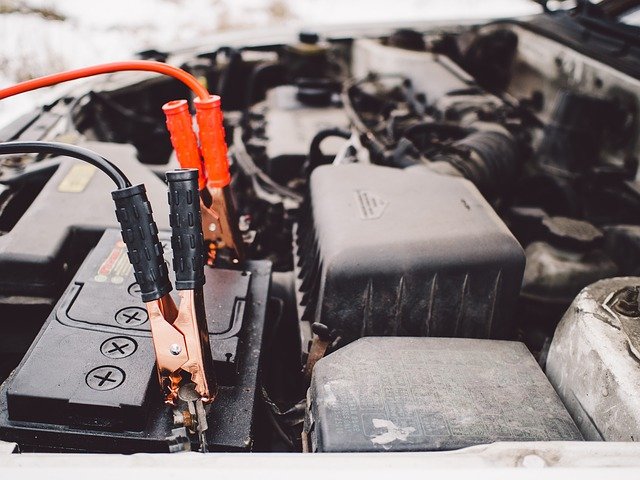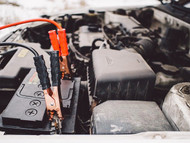5 Signs Your Vehicle's Battery Needs Replacing
11th Dec 2020

Replacing A Car Battery
Is your vehicle's battery nearing the end of its life? Automotive batteries don't last forever. Research shows that most of them last an average of three to five years. By this time, most automotive batteries will fail to hold a sufficient charge, which can one or more of the following symptoms.
#1) Not Starting
You may struggle to start your vehicle if the battery needs replacing. Nearly all vehicles have an electric ignition system. When you turn the key in the ignition, the battery will supply the ignition system with electricity. If the battery dead, however, your vehicle may fail to start. You may simply hear a "clicking" sound without your vehicle starting.
#2) Dim Headlight
Another telltale sign of a bad battery is dim headlights. Like the ignition system, headlights are powered by electricity, which is supplied by the battery. A dead or otherwise bad battery may fail to provide a sufficient amount of electricity to your vehicle's headlights, resulting in dim headlights.
#3) Engine Backfiring
Unbeknownst to many drivers, engine backfiring can be a sign of a bad battery. Engines operate by burning a mixture of air and fuel. They ignite this mixture using an electrical spark. If your vehicle's battery needs replacing, it may fire these sparks intermittently. When this occurs, your vehicle's engine may backfire.
#4) Radio Not Working
If your vehicle's radio or head unit doesn't work, you should check the battery. Radios and head units require electricity. They require more electricity, in fact, than many other electrical systems, including the cabin lights. With a bad battery, the radio or head unit may not turn on. You may still be able to start your vehicle, but if the battery is on its last leg, the radio may fail to turn on.
#5) Corrosion
When was the last time that you inspected your vehicle's battery for corrosion? When automotive batteries die, they may release gases that cause corrosion to build up. Sometimes the corrosion is green, whereas other times it's white or yellow. Regardless, large buildups of corrosion isn't normal. If you discover corrosion around the terminals of your vehicle's battery, you should consider replacing it.
After replacing your vehicle's battery, remember to keep it charged. Allowing the battery to die completely will shorten its lifespan. So, make sure your cabin lights and headlights turn off before leaving your vehicle for an extended period.

